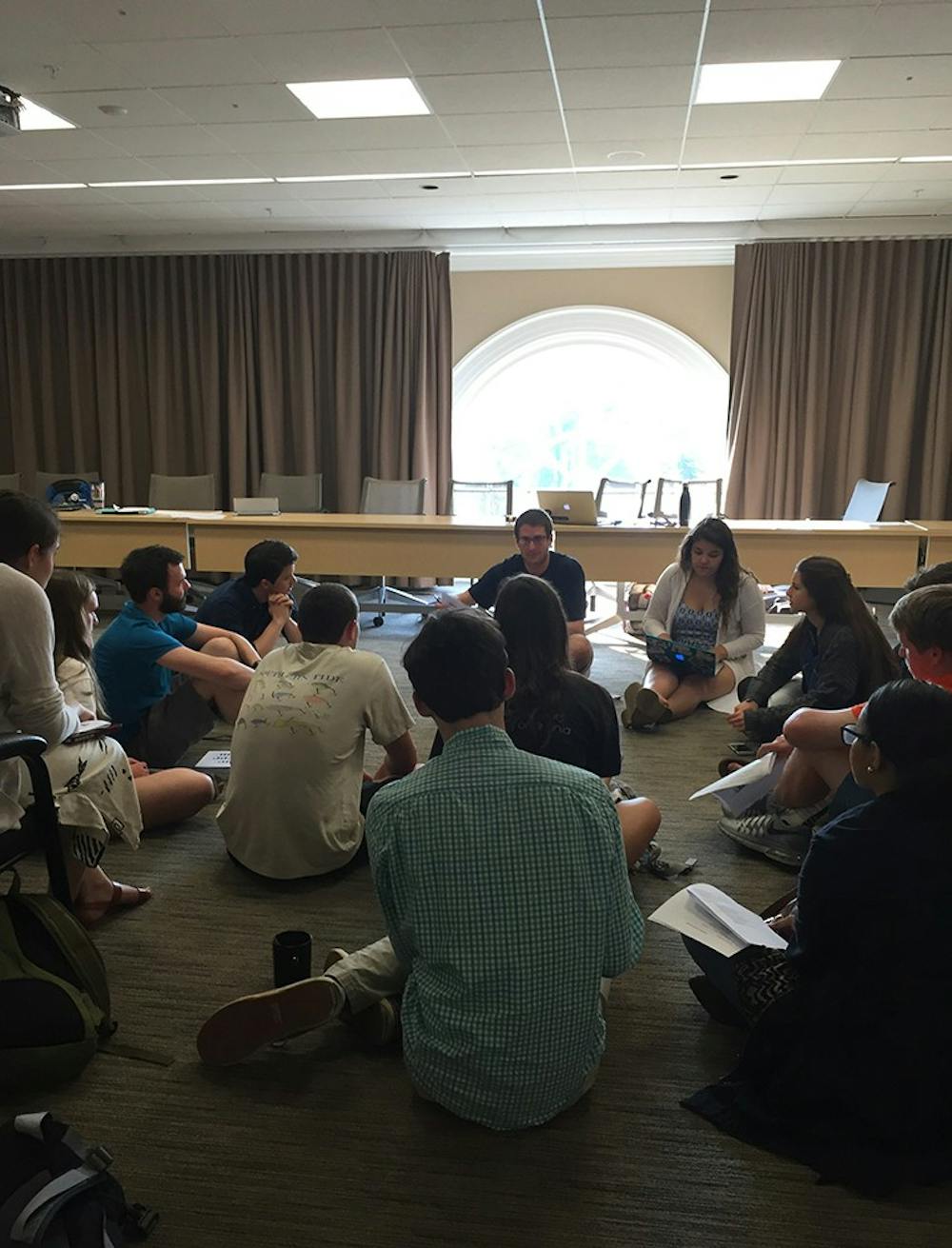The University Judiciary Committee met April 17 to go over results of an internal survey the committee conducted.
The survey comprised of ratings questions and free response questions about the functionality of UJC and main concerns with the committee. The sample size was 60 responses out of over 100 members of the UJC, including First Year Judiciary Committee, judges, counselors, investigators and educators.
Results showed that some of the best agreements from the committee and its members was with understanding the mission of UJC, the overall satisfaction with member’s experiences and the efficiency and fairness of UJC’s trials.
The issues where the survey found a need for improvement was the prominence of UJC at the University as well as the productivity at general body meetings and pool meetings.
UJC Chair Mitchell Wellman, a third-year College student, said most of the graphs showed very good results.
“People are really understanding our mission, people know about the process, but what the lowest agreements rates showed was with the university outreach,” Wellman said.
The questions that asked respondents to rate the mission of UJC and trial efficiency received the most positive responses. Questions involving the organization’s outreach and productivity received a lower rating on average.
“One component we want to focus on is how do we make UJC as emblematic as other groups around Grounds,” Wellman said. “The other two areas where we need improvement were the substance of our meetings and pool meetings.”
Based on the feedback, the committee aims to improve outreach and representation of groups such as graduate students. The committee also wants to hold more mock trials, potentially have a Stall Seat Journal publication, and representation at first-year orientation sessions.
“For the outreach component, the executive committee thought that we could hold more mock trials throughout the term and have them more conveniently located geographically and not have them all in the UJC trial room,” Wellman said. “We also want to make them more complex cases when we present them as mock trials to the public.”







